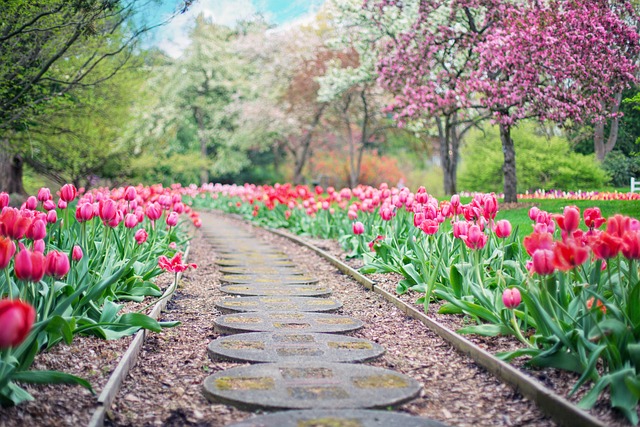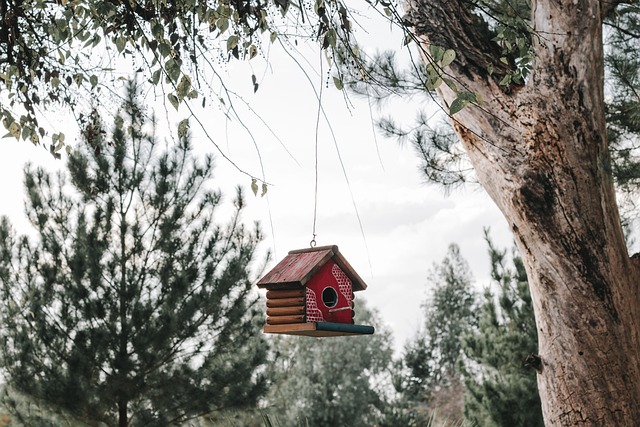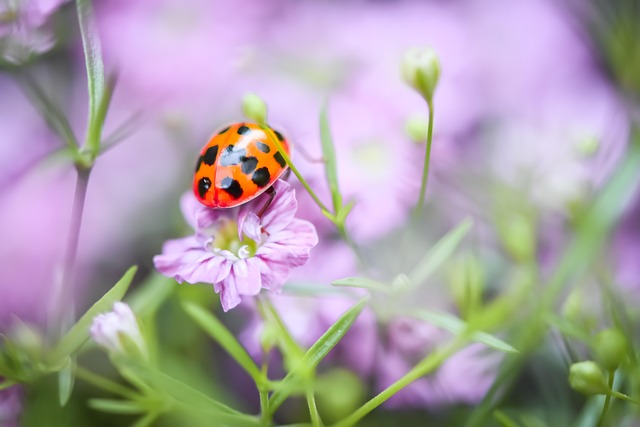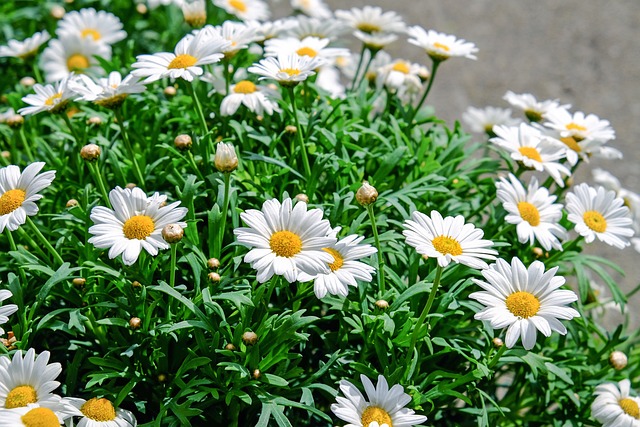Seasonal garden maintenance is key to thriving perennials and annuals. Spring preparation involves damage assessment, pruning, fertilization, and watering for robust roots. Summer tips focus on consistent watering, irrigation, and pest control. Fall cleanup includes pruning, adjusting fertilizers, and seasonal pest management. Winter protection uses mulching to insulate plants, preserve moisture, and suppress weeds. Strategic seasonal practices ensure garden health throughout the year.
Caring for your perennials and annuals throughout their active cycles is key to a lush, vibrant garden year-round. This comprehensive guide navigates the essentials of seasonal garden maintenance, from spring garden preparation to fall cleanup strategies, ensuring healthy growth during summer and protecting plants over winter. Learn optimal fertilizing schedules, effective pest control measures, and essential pruning techniques tailored to each season for a thriving garden.
- Spring Garden Preparation: Getting Started Right
- Summer Watering Tips: Ensuring Healthy Growth
- Fall Cleanup Strategies: Preparing for Winter
- Winter Garden Protection and Pruning: Safeguarding Your Plants
Spring Garden Preparation: Getting Started Right

As the cold winter months fade away, spring brings a fresh start to your garden. Spring garden preparation is vital to ensure your perennials and annuals thrive throughout the active growing season. Begin by assessing any damage from the previous year and clearing out dead plant matter. This clean slate will encourage new growth and healthy development. One of the key aspects of seasonal garden maintenance is understanding when and how to prune your plants. Pruning seasonal plants helps remove any weak or damaged stems, fostering a stronger, healthier garden ecosystem.
In terms of fertilizing schedules by season, spring is an excellent time to nourish your plants with a balanced fertilizer. This boost of nutrients will help them establish robust roots and promote lush foliage. During the summer, focus on consistent watering, especially for newly planted annuals. Summer watering tips include deep watering less frequently to encourage deep root growth. As fall approaches, implement fall cleanup strategies such as removing spent flowers to prevent seed formation in cold weather. Additionally, consider seasonal pest control methods to mitigate any insect infestations. Protect your garden over winter with a layer of mulch, insulating plants against harsh temperatures and conserving moisture.
Summer Watering Tips: Ensuring Healthy Growth

During the summer months, perennials and annuals require adequate watering to promote healthy growth. However, it’s crucial to strike a balance; overwatering can lead to root rot, while insufficient hydration can cause wilting and stunted development. Herein lies the art of seasonal garden maintenance. In terms of spring garden preparation, ensure your plants are well-watered before they begin their active phase. Once established, focus on deep watering less frequently to encourage deep root growth, making them more resilient during hot and dry periods.
To effectively manage summer watering tips, consider installing a drip irrigation system or soaker hoses to deliver water directly to the soil, minimizing evaporation. Regularly check moisture levels in the soil, especially during prolonged heatwaves, and adjust watering schedules accordingly. As the season progresses, incorporate mulching techniques to conserve moisture, regulate temperature, and suppress weeds—a beneficial strategy for both perennials and annuals. Remember that seasonal pest control measures should also be implemented during this time to protect your plants from common summer intruders.
Fall Cleanup Strategies: Preparing for Winter

As autumn winds down, it’s crucial to implement effective fall cleanup strategies to prepare your garden for winter. This includes pruning seasonal plants, as it helps to remove any dead or damaged growth and promotes healthy regrowth in spring. Additionally, fertilizing schedules should shift towards a cooler-season blend to ensure plants have the necessary nutrients for surviving colder temperatures. Seasonal pest control measures are also essential; treat plants for common winter pests before they take up residence for the season.
One vital step in fall maintenance is mulching. Applying a layer of organic mulch around perennials and at the base of trees provides insulation, preserves soil moisture, and suppresses weeds that compete for nutrients. This simple practice can significantly enhance your garden’s resilience during winter and make spring garden preparation much easier. Remember to water thoroughly before the ground freezes, ensuring plants have adequate hydration going into the dormant phase.
Winter Garden Protection and Pruning: Safeguarding Your Plants

As winter approaches, protecting your perennials and annuals from the cold is essential to ensure their survival and vibrant return in spring. Seasonal garden maintenance plays a crucial role in keeping your plants healthy throughout the year. One of the most important steps is providing adequate winter protection, especially for tender varieties. A layer of organic mulch around the base of plants can insulate them from extreme temperatures, preventing damage caused by frost and freezing winds. This simple technique is an effective way to safeguard your garden’s investment during the colder months.
Pruning is another vital aspect of seasonal plant care. In late fall or early winter, trim back perennials to promote new growth in spring. Remove any dead or diseased foliage to reduce pest and disease issues. For annuals, consider cutting them back after the first hard frost to encourage a fresh start next season. Additionally, fertilizing schedules should be adjusted by season; applying a balanced fertilizer in early spring and late summer promotes healthy growth, while a slow-release fertilizer in fall prepares plants for winter dormancy. Seasonal pest control methods are also essential to manage insects and diseases that may emerge during specific seasons, ensuring your garden stays thriving year-round.
Caring for your perennials and annuals throughout their active cycles is a crucial part of seasonal garden maintenance. By following the outlined strategies for spring preparation, summer watering, fall cleanup, and winter protection, you’ll ensure your plants thrive year-round. Remember to consider fertilizing schedules by season, implement effective pest control measures, and utilize mulching techniques to enhance soil health during each phase. These simple yet essential practices will not only maintain the beauty of your garden but also safeguard its longevity.
